
Muse & Mastery
Hosted by Aliya Cheyanne, Muse & Mastery is a digital sanctuary for creative thinkers, makers, and seekers. Each episode explores how we can live, create, and evolve in alignment with our purpose.
Muse & Mastery
The Power of Connection During Seasons of Loneliness | Ep. 32
This episode is an invitation to explore the power of reaching out and the beauty of finding your tribe, even when the world feels like it's shrinking around you. Examine how nurturing connection can be an antidote to the pangs of loneliness, and through community care, we can find the courage to face the silent struggles that bind us.
**This episode includes short segments from upcoming episodes featuring Margeaux Feldman and Jannette Anderson (stay tuned)!**
Watch this episode on YouTube!
Theme Music:
She No Dull Beat by Nana Kwabena
Festivities in Belize by RAGE Productions
Enjoy the episode?
- Share it with friends!
- Send a voice note or text!
- Rate & review the podcast!
Follow @museandmasterypod on your favorite SM platforms!
Watch full interviews here on YouTube!
Join me over on Substack!
Check out my favorite brands and snag a discount!
Grab a guided journal here!
Are you a creative, solopreneur or entrepreneur who’d like to be featured on Muse & Mastery? Let me know here!
Hosted by Buzzsprout. See the Buzzsprout - Privacy Policy here.
Y'all. There is a major loneliness epidemic. This has come up a bit in recent interviews, but also just trends. I'm seeing online things that I'm reading about, but there is a major loneliness epidemic and it's not okay. We as human beings are designed to be social creatures and it's really sad that so many people are feeling so lonely. There was this trend on TikTok where folks were sharing carousels and the initial language would be social media isn't a real place or social media is fake. So here are some things that I'm struggling with, and in almost every carousel or video I saw of people doing that trend, ranging in ages from like Gen Z to millennials. On almost every single video or carousel I saw of that trend, there would always be someone talking about how lonely they are, and the pandemic really did a number on us.
Aliya Cheyanne:It was burning me the heck out. I was constantly doing stuff all the time, like work all day and still go to dinner after work all day, still do an activity after like getting home late all the time, multiple days a week, and still doing stuff on the weekends and through the course of the pandemic and, of course, it could be much worse. Obviously, I survived it. I'm healthy, I'm still here. My family members are still here. There are so many people who cannot say the same, and that is something that will live with them and haunt them forever. It was a really tragic and horrific time and so many people are still struggling with it. It's still a thing. People are still wearing masks in some spaces. Vulnerable people, people who are immunocompromised, are still worried about COVID-19, among many other things, and many other variants. However, folks who remained relatively physically healthy during that time in a lot of cases, those folks have since been struggling mentally, like either the pandemic exacerbated mental health issues that were already there, or folks for the most part felt fine. They're struggling through things that they did not struggle with prior to 2020.
Aliya Cheyanne:Loneliness is a part of that. So many people lost their sense of community during that time. So many people lost a sense of connection during that time and have either struggled to maintain that connection or struggled to repair or rebuild on the other side of it, and it is having a stark impact. I actually talked about loneliness a teeny tiny bit in an upcoming interview with Margo Feldman, who created the Instagram page Softcore Trauma, and I'm going to insert a tiny little clip of that conversation here for you to hear, and I think that's really special too, because something I've spoken about on this podcast before is just finding your community. At the end of the day, that's how we're gonna live in a better world.
Aliya Cheyanne:Um, I think also just on that front, though, some things I've heard about, you know, people who are just deep in their creative work or deep in their solopreneurship or their entrepreneurship is that it can sometimes be really lonely, like if you're really committed to it and you're constantly working, you're not giving yourself the space to breathe and to work. Like it can be really lonely. So I'm curious if you've at any point experienced that with your career and if you have, like how you've kind of remedied that.
Margeaux Feldman:Yeah, I mean I think I've been really lucky in a lot of ways to not really have experienced that, in part because I was already building friendships with people who are also doing the same kind of thing. You know, like they would share my post or they would respond to like one's DMs, so you know I'd be following their work and sharing it. So I already had probably like like a handful of you know, like social media friends who were also doing their own thing. So I was really grateful, you know, to have people that I could bounce ideas off of. You know, or in moments where the internet was like not being a super kind place, like I had who I could talk about those experiences with. You know, and and I'm grateful because I have like amazing best friends and like an amazing partner, but, like you know, they're not doing that kind of work. One of my besties is, but like she really needs, she actually really has to be off of social media for, like her mental health, I mean, for folks who are feeling that loneliness, I would just say, like, who are people like that are doing this work that, like you really love? You know it might sound like scary or, like you know vulnerable to like slide into their DMS but, like for me, whenever someone's like done that and just sent me like a message, it's like makes my day. So, you know, if you can, you know, just do the brave, scary thing of like putting yourself out there. You know, I'm sure that those people probably are also feeling disconnected and isolated and like they would love to have someone to connect with who understands what it means to do this kind of work. Yeah, I just, you know community has always just been so important to me. So even you know I mean doing a PhD.
Margeaux Feldman:When you're doing your dissertation, you're largely just like alone, like in whoever it's, like your office or your home or wherever it is like you know cranking out this like dissertation, and I just knew that I would be miserable if I was like never seeing people.
Margeaux Feldman:You know, yeah, and in those days, like I created like a writing group and we met virtually once a week to just like work on our writing together. So that's like another thing I would suggest like if you have, if you know, at least just all it takes is one person. If you have one person, you know that you feel comfortable enough, just like saying like hey, do you want to have like a virtual meetup, like you know, once a week or once a month? You know where we can just like share digital space and talk about what we're working on and then just have some quiet work time that we're just sharing together like that. Really, it's also a great accountability tool because somehow, when there's someone else on the screen, even though they have no idea what you're doing, you are more productive because, yeah, you're less likely to like yeah, you know, decide to get up and vacuum your apartment or do whatever other task there is to do.
Aliya Cheyanne:Yeah, I love that advice. That's so good and you know it helps to alleviate some of those feelings around loneliness, but it also creates an accountability partner in a way, and I think that's really good too, especially in work around creativity. And we're back to the present episode. This conversation around loneliness also came up in another interview that I have upcoming with Jeanette Anderson, who does a lot of work with what she calls the maturepreneur, so people who are entering entrepreneurship at the age of 55 plus, and we talked a bit about what loneliness and isolation looks like for seniors especially, and I'm going to insert a quick clip about that here.
Jannette Anderson:The second epidemic is the epidemic of loneliness. Since COVID that was a big issue. People thought, oh well, we're back to normal, it's okay, we aren't. People have not come back out in the same way. Even if you go to networking events, you'll notice there's a difference. But especially for older people, they tend to be more isolated, and if they're no longer working, a lot of their support structure goes away. So they tend to be quite isolated, and if they're no longer working, a lot of their support structure goes away. So they tend to be quite lonely as well. And loneliness will take eight years off of your life, yeah. So it is important that they get back into community, and so becoming an entrepreneur is another way to do that, although entrepreneurship can also be very lonely. So you have to find ways to connect. As you know, you've been doing this a while it can be lonely. We spend a lot of time talking to people one-to-one, maybe on the screen, but it's not the same.
Aliya Cheyanne:And we're back to the current episode and I just think all this is really sad and I think that sucks. Loneliness can definitely suck. It can be haunting and it can be draining. I think there's a difference between loneliness, isolation and chosen solitude. It's one thing if you choose solitude and you are comfortable in that and content in that and happy in that. That's one thing. But forced loneliness or forced isolation because a lack of connection, is something totally different and it can literally take years off of our lives and that's sad and it sucks to be in a time where more and more and more people are feeling this way.
Aliya Cheyanne:And I think what we're also seeing and learning is that just because social media exists, just because you have access to so many people through social media and I'm not downplaying the importance and the need for friends online but it doesn't always make up for and it doesn't always substitute for in-person connection and interaction. Connecting digitally doesn't always suffice when it comes to, you know, connection in the physical and connection in person. I think that it's really hard and really difficult and really sad for anyone listening who might be experiencing loneliness or isolation, that you take a step back, take a deep breath and really think about who in your community you can turn to and lean on if you're feeling that way. One anecdote to loneliness and isolation is connection, and if there's someone in your life who can help alleviate that feeling someone maybe you haven't connected with in a long time or that you want to connect with, or a go-to family member, a go-to friend, whoever it might be, or whatever the case may be to seek that out and to find connection where you feel possible.
Aliya Cheyanne:I think another aspect of this, too, is we as a society have put so much weight and focus on romantic partnership. I personally think that has a lot to do with the powers that be wanting people to be in unions and procreate and keep the workforce alive and sustained. But outside from that, yes, romantic love is valuable and important and I'm seeing so many people online to talk about how they're whatever age 30s, 40s and they've never been in a serious relationship, they've never been loved or desired romantically and they don't even know what that feels like. And there's an immense amount of grief in some people feeling that way, and I think part of that is because, as a people, we put a lot more emphasis on romantic partnership than friendships and community care. But I think the other part of that is because as human beings we deeply long to be loved and to be seen and to be cared for and to be desired.
Aliya Cheyanne:And I think on the one hand, there are people either who have been single for a long time or who are newly single, or a child, who are excited to be single at some point because maybe the situation they're in ain't working out, and on the one hand that's fine for folks who are embracing it. But I think for folks who are tired of being single, who are ready to love and be loved, there is a special and acute type of loneliness that comes with that kind of longing, one that no amount of self-care or no amount of friendship can really heal or distract us from. And that is something to sit with. I think on the one hand, there are a lot of people who are realizing that maybe perhaps for them singleness is better than some of the situations they've been in, or maybe they have some more work they feel like they need to do before they can explore partnership. Singleness carries its own type of loneliness in a way, and working through that can sometimes be really tough and really daunting for people, for whatever reason, they've chosen to be single. For whatever circumstance, they've been forced to be single.
Aliya Cheyanne:There are some people who maybe their relationship didn't work out, or some people who perhaps have not had a choice in becoming single because maybe they've lost their partner, and I think, on the one hand, what's really interesting is to see how certain companies and brands are responding to that. I don't know. Some folks have seen the latest round of Bumble advertisements and billboards that they've gotten a lot of backlash to, because a lot of it is was not thoughtful or sensitive toward people who are choosing celibacy or abstinence for whatever reason. And in response to losing a lot of male users, they decided to also alienate a lot of women users, which is crazy, and are having to deal with the repercussions of that and are having to deal with the repercussions of that. The other person wants they just want to hook up and they're locking it down for whatever reason until they feel comfortable and safe enough to explore that aspect of their life and their body with someone else. Just the response to that being like you know you've been abstinent or celibate long enough like be for real, is wild, is wild, but I think there are so many things that go into just loneliness and I think one, as I've said before like one of the solutions to that is community, and I think you have to engage in community in a way that feels good to you, but also in a way that challenges you.
Aliya Cheyanne:It's always important to connect with friends and people form different relationships with friends over various periods of time and through different courses of life. Like it could be a friendship you make in childhood, you make in grade school, you make in high school, you make in college, you make it your first serious job. And I think it's also important to be mindful of where people fall in the spectrum of friendship. Like not everyone's going to be your best friend. Some people are going to be more on an acquaintance level, some people are going to be more on a friendly and friendship level. Some people will be best friends, some people you know you can lean on for certain activities and certain conversations, others you shouldn't and you can't.
Aliya Cheyanne:And I think also identifying relationships and friendships that feed us the most, especially during seasons of loneliness, is a part of the cure Finding community in whatever way that looks like for you. That's through activism, as we'll talk about with our conversation with marco feldman coming up soon or whether that's finding community through different activities you like. Like I've mentioned before that, there is a foraging group that I'm a part of and I enjoy especially when the weather is nice going on foraging activities with that group and learning more about plant medicine and being surrounded by people who have that wisdom and who are excited to be in nature. Not every friend is going to want to do that or participate in that. I know which friends to call if I want to go check out a new exhibit at a museum. I know who to call if I want to just have a girls night in and have dinner and catch up and hang out with my dog, like it just depends.
Aliya Cheyanne:And I think having a sense of community is an important way to combat this loneliness epidemic because it is wild and kind of scary. Some people, through loneliness, are driven to extreme bouts of depression. Some people, through loneliness, are driven to extreme bouts of madness and a lack of sanity. Loneliness doesn't always have a positive effect, especially when you're not lonely by choice or lonely by force. So I think finding ways to alleviate that is super important. Having a village leaning on a village, I really do hope for our society that we become less and less individualistic and more and more community care centered. I am someone who has been a pro self-care strategy and regimen for a long time and I am learning how much more important and valuable community care actually is.
Aliya Cheyanne:You know, you've seen so many statistics and examples about how community and friends show up for people as they age, when they get sick. I've heard so many countless stories and we'll talk about some statistics around this in an upcoming conversation with Jeanette Anderson but so many statistics around what happens as people age like where people think they go Like. A lot of times it's not always family that people are leaning on as they get older, it's community and it's friends. It's friends who's showing up to take care of them when they're sick or going through sad times or depressing times. It's friends that are caring for each other. In older age we're witnessing now too, especially back on the like hetero dating front.
Aliya Cheyanne:Many women are becoming deeply unsatisfied with the way that men are showing up in relationships and they're choosing themselves. They're choosing to be abstinent, celibate, take a break, they're choosing to work on themselves, and that's sending a lot of men into a panic. There are a lot of men who are absolutely doing the work and trying to become better, and there are a lot who are not, because they're falling into the incel trap. But it makes me think about the ways that women are showing up for each other and in community with each other. And it's always funny to me whenever, like old, rerun, episodes of the Golden Girls comes on, because sometimes I think to myself. Episodes of the Golden Girls comes on because sometimes I think to myself is that the worst thing in the world to have a nice, comfortable house with a few of your friends and you all come and go as you please, you support each other, you help each other, especially as you're eight? Is that the worst thing in the world? I don't think so. So sometimes I think about that too and I wonder what the future is going to look like, especially with this movement of de-centering men, especially with this movement of people trying their hardest to combat loneliness through community and through friendship. And even considering this loneliness epidemic and what that's driving some folks to do and how it's driving some folks to feel, I think that's going to be really interesting.
Aliya Cheyanne:I've spoken about solo trips in the past. I took my first one. It's like a birthday trip in 2023. I went to Turks and Caicos and, yeah, I enjoyed that experience. I'm excited to have a solo trip again at some point.
Aliya Cheyanne:But I heard this idea recently of a solitude trip. So a solo trip is going with the intention that you're going on your own, but not necessarily that you'll be alone, like you'll still meet people and connect with people and go on group activities and you know you may meet friends along the way. Solitude trip and I believe I heard this on the Small Doses podcast, amanda Seals podcast, like an older episode, and I believe it was her who was talking about a solitude trip and a solitude trip is going on a trip with the intention of being in solitude with yourself. There is no desire or pressure or need to have a lot of interaction with others. Even though you're going on the trip on your own. There's no pressure to make connection with others. It is a solitude trip so that you sit with yourself, you be with yourself on those like quiet retreats where you go on experiences and you don't speak for long periods of time days at a time, maybe weeks at a time and I'm very intrigued by this idea of a solitude trip and I think it might be something I want to explore in the future at least once an experience and see how I feel about it.
Aliya Cheyanne:But I'm also someone who is very comfortable in solitude, to the extent that I still have access to friends and family when I need it. But I'm also very comfortable being with myself in silence, and I also enjoy being with other people who are also comfortable with silence. It's a comfortable and a content like I know you're there, we're here with each other, but we can sit comfortably in the quiet. I appreciate that too. So I'm very curious about what it would be like to do an intentional solitude trip. So if and when I do that, I will be sure to let you all know. Intentional solitude trips so if and when I do that, I will be sure to let you all know.
Aliya Cheyanne:Yeah, our upcoming episodes are not about loneliness. It comes up as a topic in upcoming episodes, which is why I wanted to include some clips here and do an episode centered around that. So I just hope that if you are someone who's listening experience any form of just loneliness or aloneness, or if you feel isolated, I hope that you will take a moment to sit with that feeling and really think about what it would take for you to come out of that. Think about memories or experiences that made you feel the most full and the most fed. If you can't recreate that exact thing, how can you do something close? How can you be in a community with others who love and care about you and support you and would want to hold your hand through this period of feeling intense loneliness and isolation? Hold your hand through this period of feeling intense loneliness and isolation. I hope you think about what community care looks like with you, how you can be gentle with yourself, this idea of doing one gentle thing for yourself.
Aliya Cheyanne:We talk about this a little bit in an upcoming interview with Margo Feldman, but I was also listening to an episode of Balanced Black Girl recently. It was an episode featuring Tembi Locke, who wrote the memoir from scratch that was later adapted as a short series on Netflix. Or at the end of the episode there's a moment where Tembi is talking about what's the gentlest thing, what's the most gentle thing I can do for myself today. This theme and this conversation has come up recently, whether through listening through a podcast or engaging with someone else in conversation, and I think it's really important. It's something I want to incorporate into my day. If I'm feeling down or low energy, you know what's the most gentle thing I can do to take care of myself. So I want you to think about what's the most gentle thing you can do to take care of yourself, something that feels easy but that would bring you comfort. For me sometimes that's making a really hot cup of tea and sitting down under a blanket and taking my time and drinking that tea while my dog's storm. Her head is on my lap and some of my sweetest gentlest moments are when she's taking a nap and like snoring and her head is on my lap and I'm sipping my teas.
Aliya Cheyanne:Think about what gentleness feels like for you. Think about what comfort feels like for you, especially in a season of loneliness. I hope that you will find the medicine that you need, either in community, whether that be through partnership maybe you're partnered and your partner helps alleviate some of that or, if you're single and there's no partner right now, perhaps through community, through friendship, through friendship period. That's really important. It helps to sustain us and keep us vibrant and healthy and strong through loving relationships.
Aliya Cheyanne:I hope that, although this episode was a lot of rambling and just thoughts kind of sputtering out. I hope that you were able to take something away from it. I hope that you're able to pause and find a moment of reflection and I hope that, if you are experiencing a season of loneliness or grief or heaviness or sadness, that you will find the medicine that you need to feel relief and comfort and joy again. And I hope to meet you back here next week For our next episode. We'll be speaking with Margo Feldman, who created the Instagram page Softcore Trauma, about all things creativity, all things writing, all things academia and all things community. So until soon, friend, take good care.
Podcasts we love
Check out these other fine podcasts recommended by us, not an algorithm.

ShxtsNGigs
shxtsngigs
LOVERS by shan
LOVERS by shan
Can't Afford Therapy
Can't Afford Therapy Podcast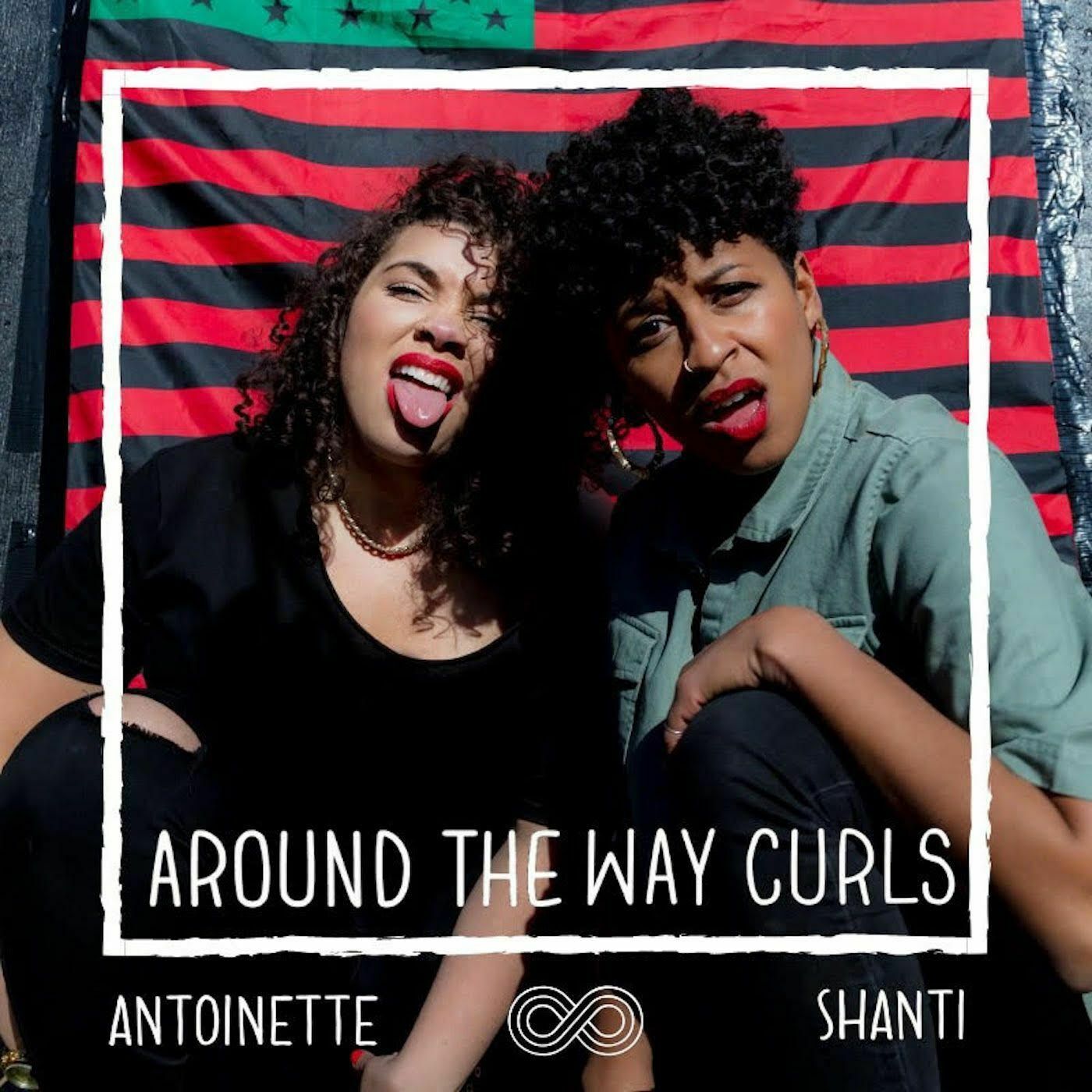
Around The Way Curls
Antoinette Lee & Shanti Mayers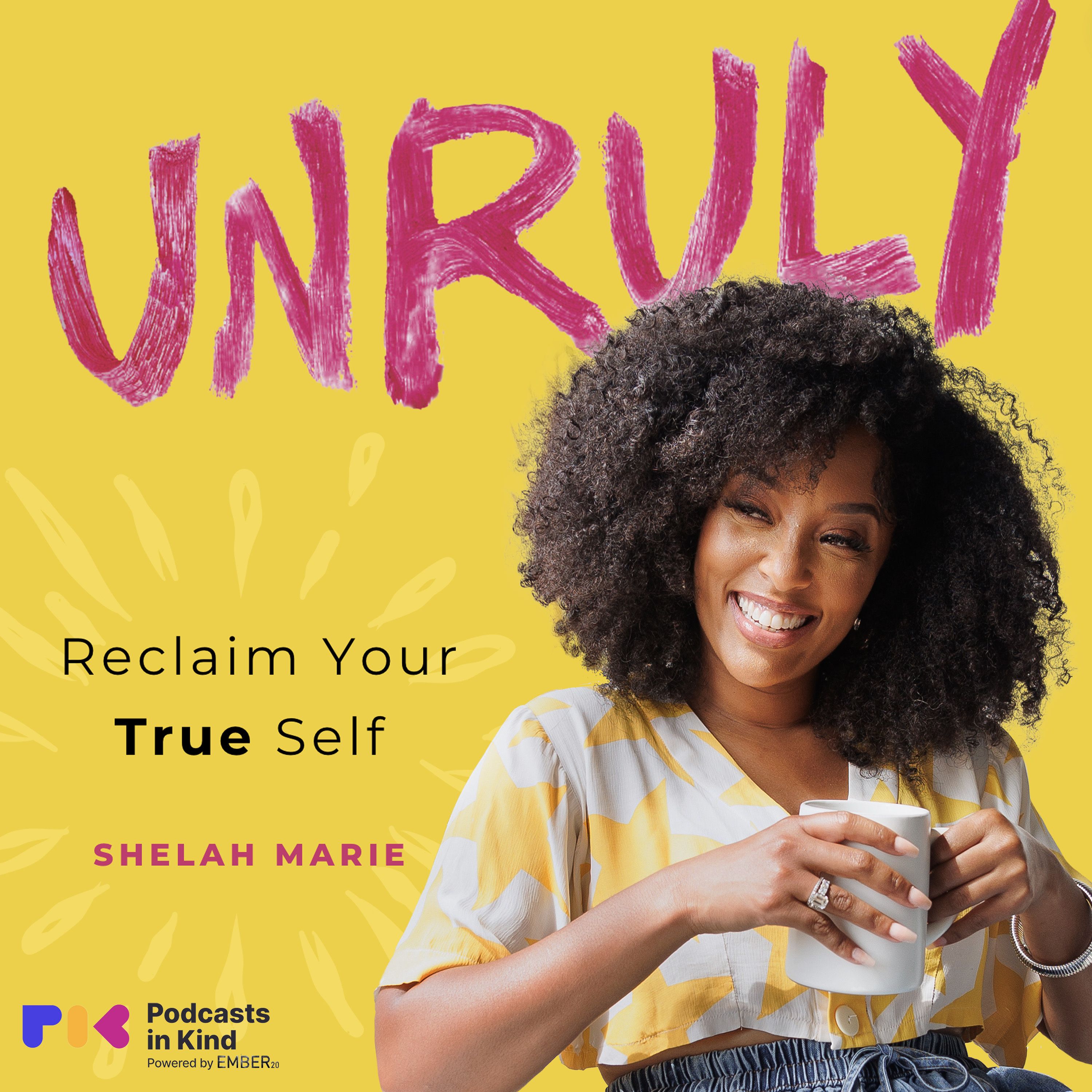
UNRULY WITH SHELAH MARIE
UNRULY WITH SHELAH MARIE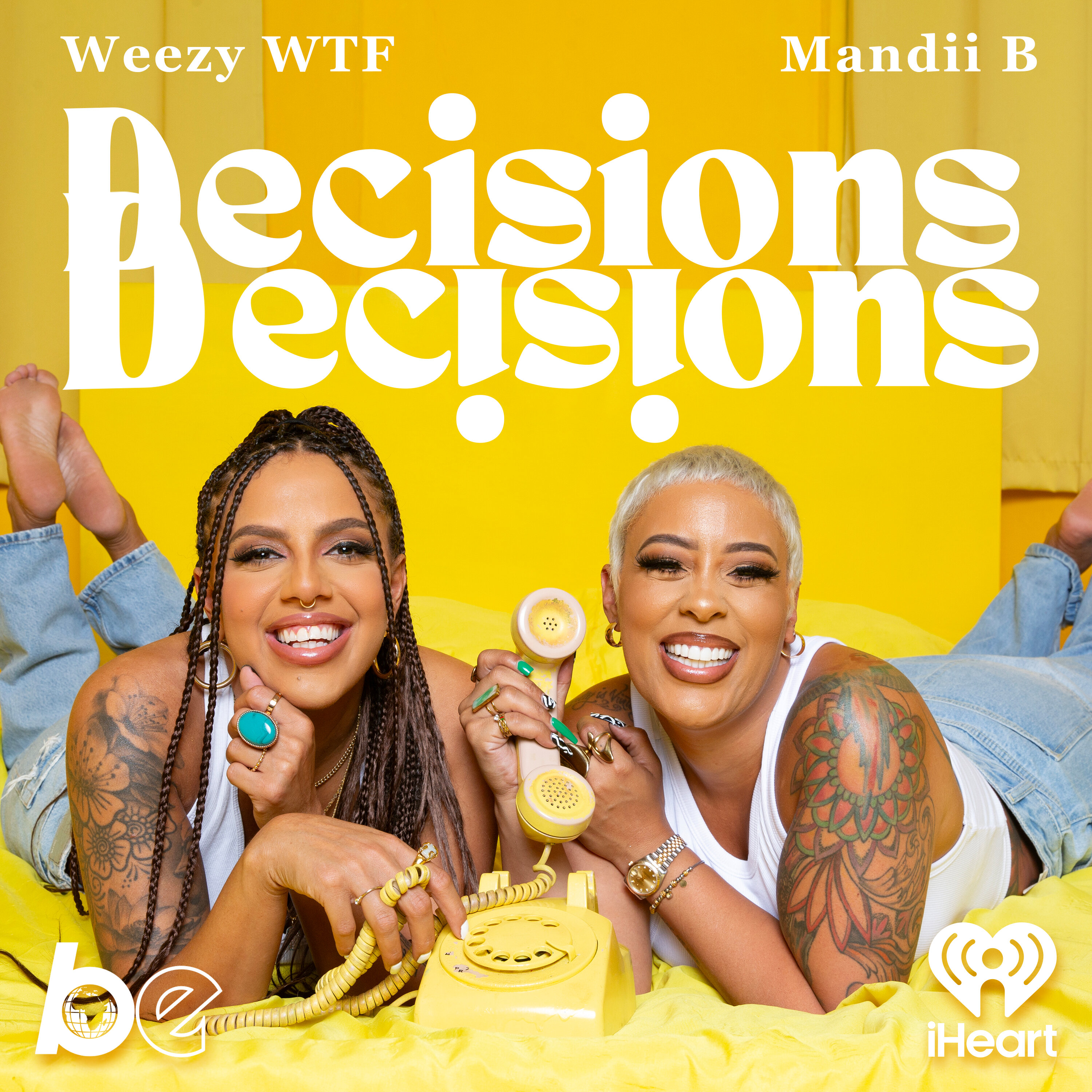
Decisions, Decisions
The Black Effect Podcast Network and iHeartPodcasts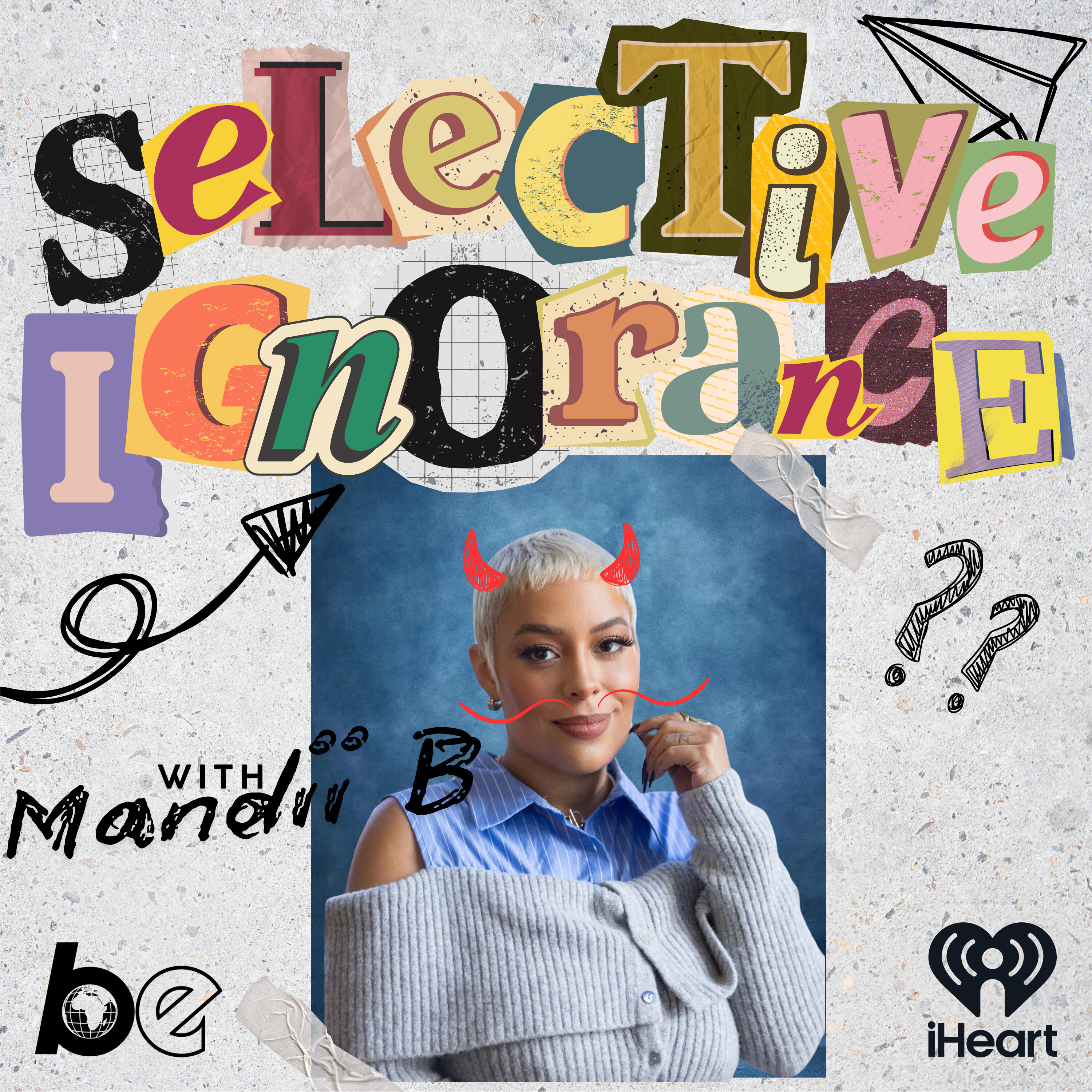
Selective Ignorance with Mandii B
The Black Effect Podcast Network and iHeartPodcasts
The Slumflower Hour
Chidera Eggerue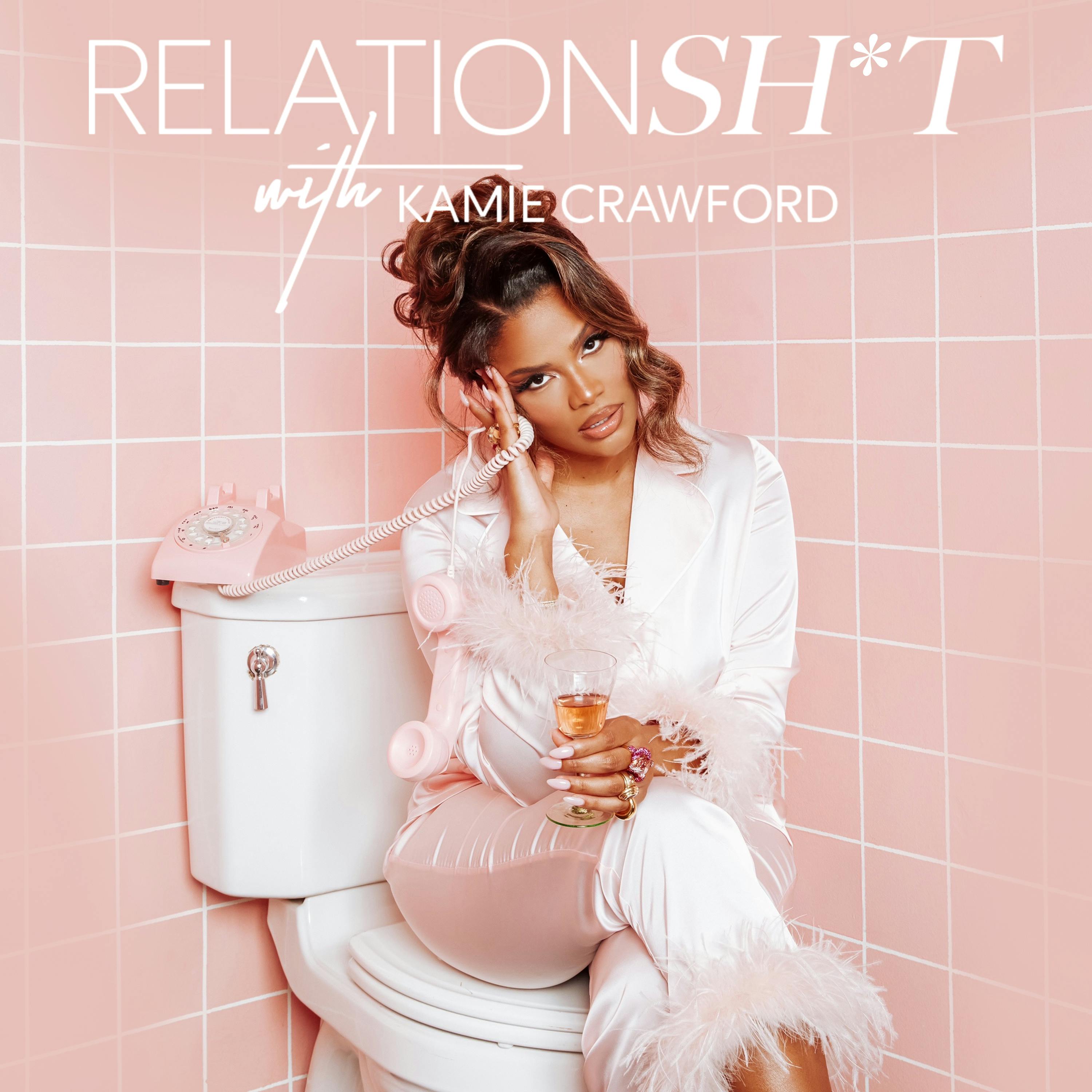
Relationsh*t with Kamie Crawford
Kamie Crawford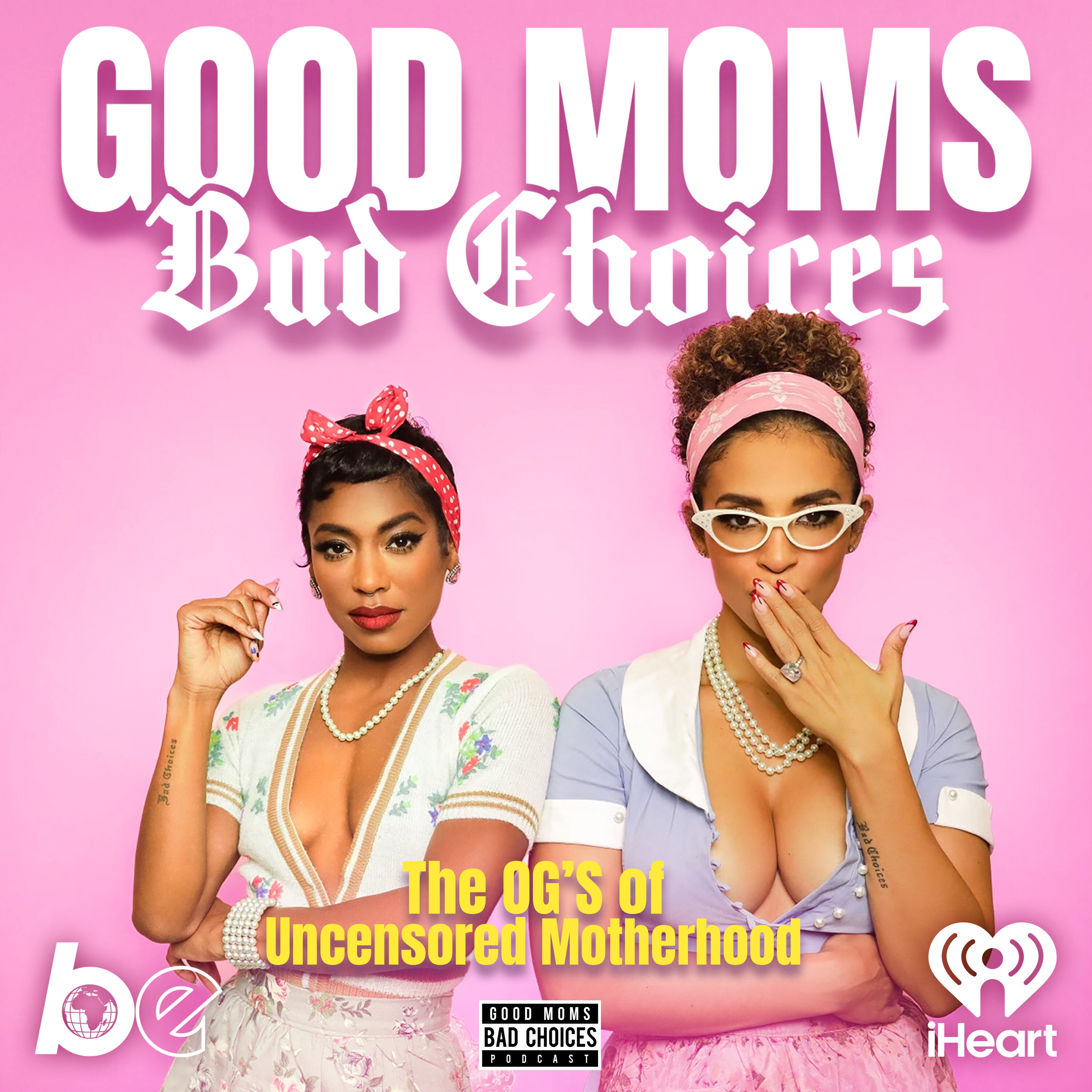
Good Moms Bad Choices
The Black Effect Podcast Network and iHeartPodcasts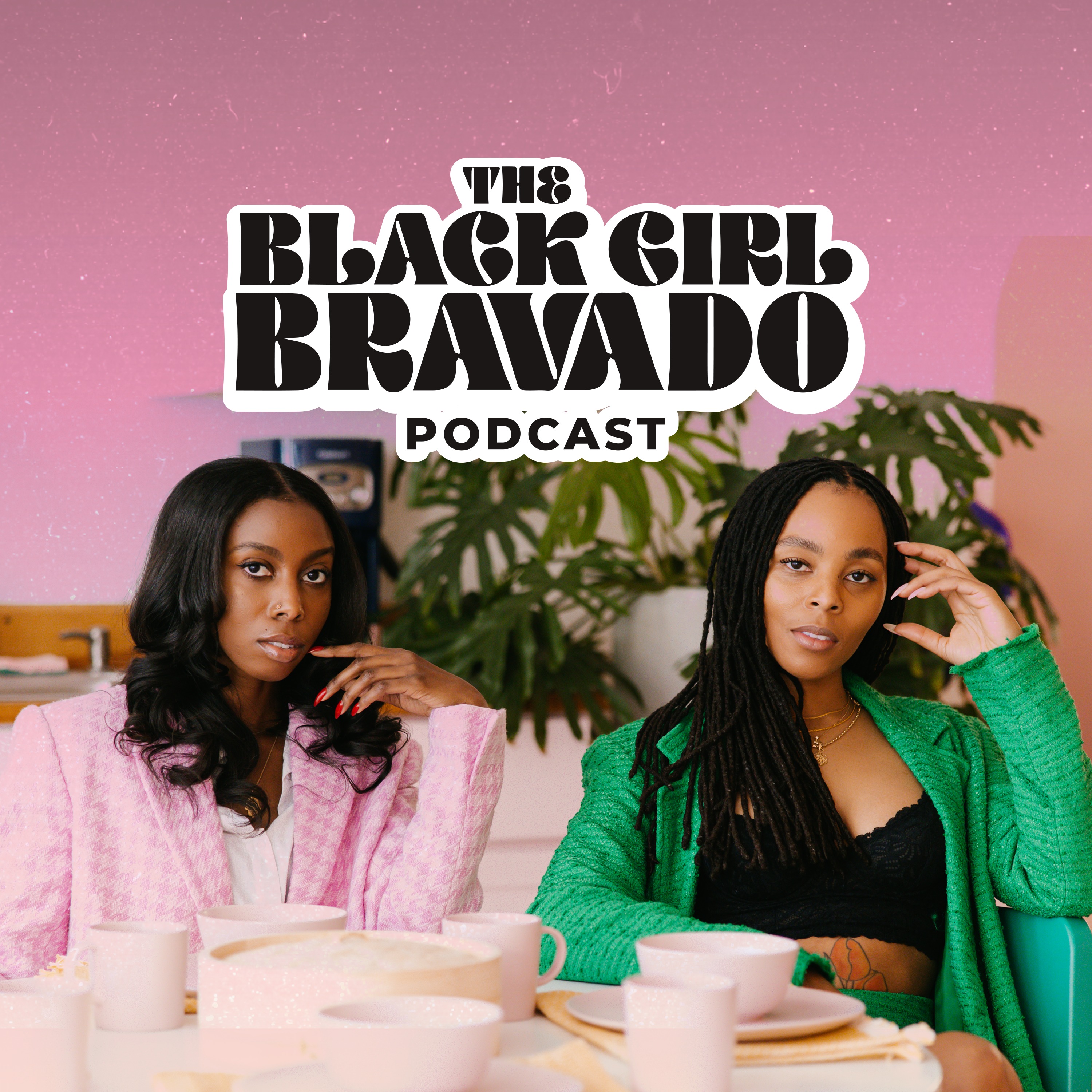
The Black Girl Bravado
Black Girl Bravado
Slay Girl Slay
Ashley Leggs
She's So Lucky
She's So Lucky
SpeakEZ Black Renaissance Podcast
Qadry Harris, M. Div.
Bobo's Void
Bobo, Donavon and MangoUpstream
Upstream
Caribbean Mystics
SpectreVision Radio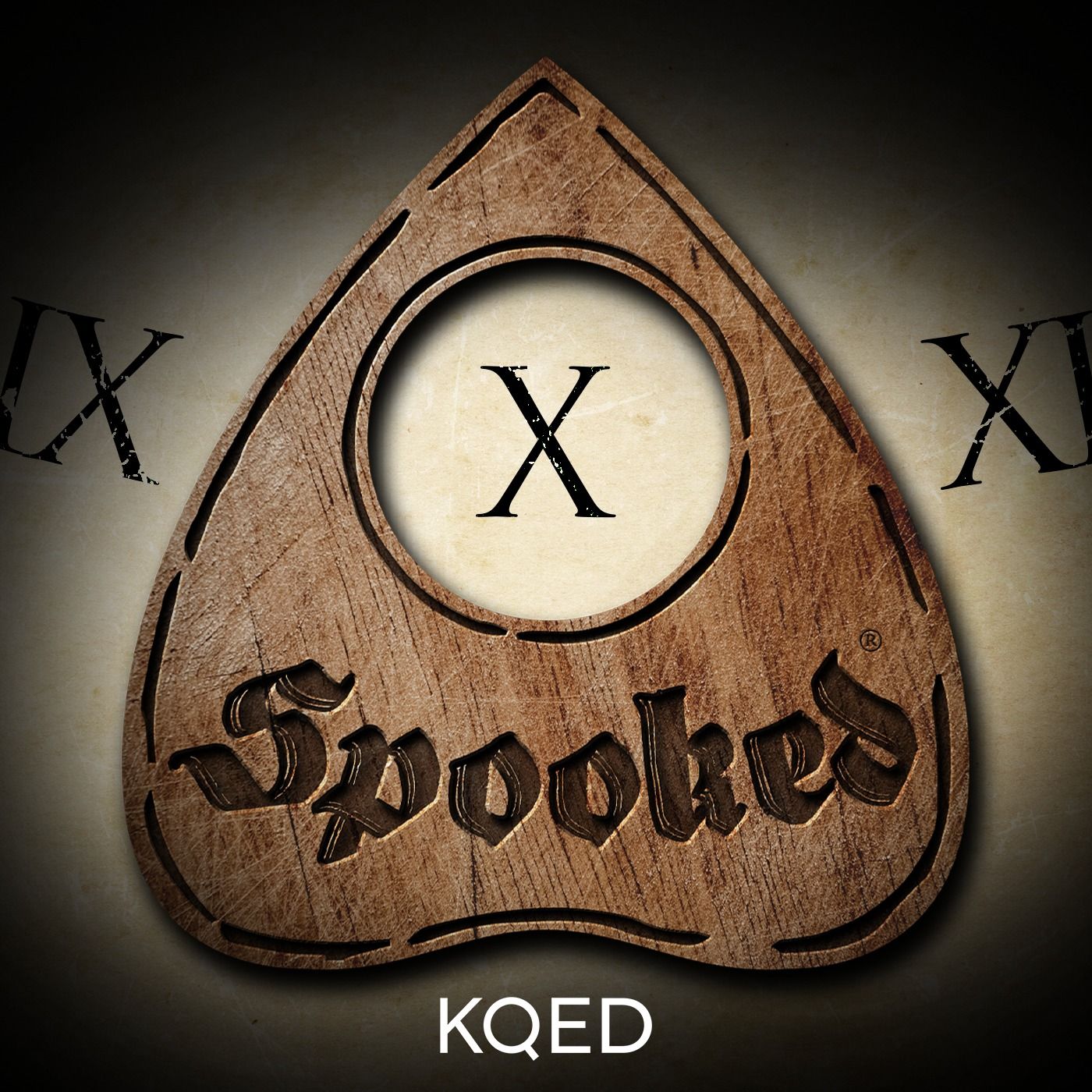
Spooked
KQED and Snap Studios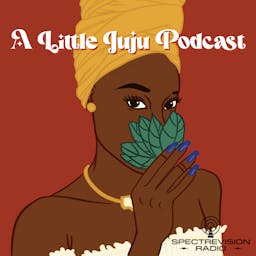
A Little Juju Podcast
SpectreVision Radio
Magic in the United States
Magic in the United States
Sensual Faith Podcast with Lyvonne Briggs
Lyvonne Briggs
Our Ancestors Were Messy
Nichole Hill
CultureCon Uncut
Spotify Studios
Hold For Maintenance
Hold For Maintenance
